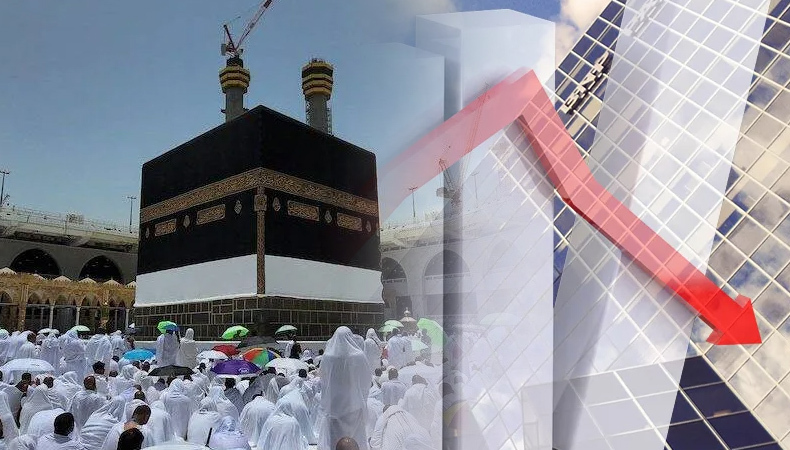The Economic Strain on Saudi Arabia’s Largest Hajj Pilgrimage in Three Years

Millions of Muslims from all over the world are expected to travel to Saudi Arabia for the largest Hajj pilgrimage in the past three years. However, the burden of the global economic crisis and inflation has clouded this year’s adventure. It has become more and more difficult for many individuals and families to make this spiritual journey due to rising costs for travel, lodging, and other necessary expenses. In this essay, we examine how pilgrims’ financial struggles affect their ability to participate in the Hajj in various nations.
Also Read – Hajj 2023: Know Whole About it
Mounting Costs and Economic Crises
The cost of the Hajj trip, including travel, food, and housing, has increased dramatically as a result of the growing global inflation rates. The financial burden has gotten even worse for nations dealing with economic crises and currency devaluations. It is difficult for the residents of many countries, including those with sizable Muslim populations, to afford the journey due to economic hardships. As a result, several nations have found it difficult to fill the pilgrim places that were allotted to them. This is a surprise development given that historically, demand has always outpaced supply.
Quotas and Restrictions
Saudi Arabia assigns a set quota to each nation, often roughly one-tenth of one percent of its Muslim population, in order to control the number of pilgrims and maintain impartiality. Foreign pilgrims were, however, prohibited from doing the Hajj in 2020 and 2021 as a result of the COVID-19 pandemic, and quotas were drastically lowered in 2018. The majority of quotas have reached pre-pandemic levels this year. But many countries are struggling economically, making it difficult for them to send the anticipated number of pilgrims. For instance, Egypt saw fewer pilgrims than in prior years due to economic problems and 40% inflation that affected its citizens’ capacity to pay for travel.
Challenges Faced by Individuals
People like Mohammed, a university lecturer from Cairo, have been compelled to abandon their yearly habit of applying for the journey due to the escalating expenses of Hajj packages. Although the financial sacrifice needed to make the trek is typically manageable, this year’s price increases have put it out of many would-be pilgrims’ reach. The capacity to withdraw foreign cash, book tickets with specific airlines, and manage necessary expenses when visiting Mecca have all been impacted by inflation and currency devaluations.
Different nations have reacted differently to these economic difficulties. For instance, Egypt allows people to purchase Hajj packages through private businesses by distributing a portion of its quota through them. Applications for government-sponsored vacations have decreased as a result of the roughly twofold increase in costs over the prior year. In contrast, despite lengthy wait times brought on by pandemic interruptions, countries like Indonesia obtained more slots and easily filled them. India reduced the price of state-sponsored Hajj packages, giving its pilgrims a rebate. Some people put off their plans in the hopes that there will be more cheap options in the future, but others are adamant about performing their spiritual commitment despite the financial burden.
Millions of Muslims from all over the world regularly travel to Saudi Arabia for the Hajj pilgrimage, but recent years have seen economic difficulties overshadow this important event. It has become more and more difficult for people and families to finance the charges associated with this spiritual journey due to rising costs and economic challenges.
Also Read – Hajj 2023 From Oman- Here’s the Information
Due to the pandemic’s disruptions, some nations struggle to meet their quotas while others encounter a backlog of eager pilgrims. Even though economic constraints have an impact on participation, the determination and commitment of many people to make this trip remain unwavering, underscoring the Hajj’s continued significance as a goal-oriented pilgrimage for Muslims all over the world.




